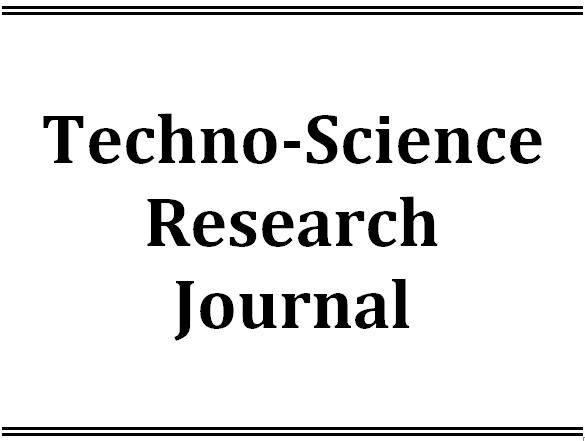Latest Issue
The Negative Experiences of Low-Income Citizen Commute and Their Intentions Toward Public Bus in Phnom Penh
Published: December 31,2025Reliability Study on the Placement of Electric Vehicle Charging Stations in the Distribution Network of Cambodia
Published: December 31,2025Planning For Medium Voltage Distribution Systems Considering Economic And Reliability Aspects
Published: December 31,2025Security Management of Reputation Records in the Self-Sovereign Identity Network for the Trust Enhancement
Published: December 31,2025Effect of Enzyme on Physicochemical and Sensory Characteristics of Black Soy Sauce
Published: December 31,2025Activated Carbon Derived from Cassava Peels (Manihot esculenta) for the Removal of Diclofenac
Published: December 31,2025Impact of Smoking Materials on Smoked Fish Quality and Polycyclic Aromatic Hydrocarbon Contamination
Published: December 31,2025Estimation of rainfall and flooding with remotely-sensed spectral indices in the Mekong Delta region
Published: December 31,2025Crop Disease Dataset and Recognition using Convolutional Neural Networks
-
1. Department of Information and Communication Engineering, Institute of Technology of Cambodia, Russian Federation Blvd., P.O. Box 86, Phnom Penh, Cambodia
Received: August 26,2022 / Revised: / Accepted: April 20,2022 / Available online: June 30,2023
Crop diseases, unfavorable growth, and nutritional deficiencies have a significant impact on the quality and quantity of agricultural income. According to the United Nations’ Food and Agriculture Organization, it is estimated that pre- and post-harvest diseases alone destroy at least 20–40% of global agricultural production. In developing countries like Cambodia, farmers tend to have a limited understanding of crop diseases and how to treat them, therefore AI solutions can assist farmers in detecting crop irregularities and diseases, which are now lacking in the agricultural sector. With the advancement and developments in AI Deep Learning Algorithms, this paper focuses on how disease dataset was collected and generated, as well as experimenting with four CNN models to detect and recognize the disease name across thirteen disease classes and evaluate the model performance such as accuracy, confusion matrix and computing resource consumptions that operate best with this dataset and can be integrated into mobile phone applications and microprocessor devices. The result of this research is a labeled crop disease dataset and experimental results, this dataset can achieve highest accuracy of 89.210%, 90.558%, 92.100%, 91.136% for InceptionV3, InceptionResNetV2, MobileNetV2 and EfficientNetB0, respectively.

